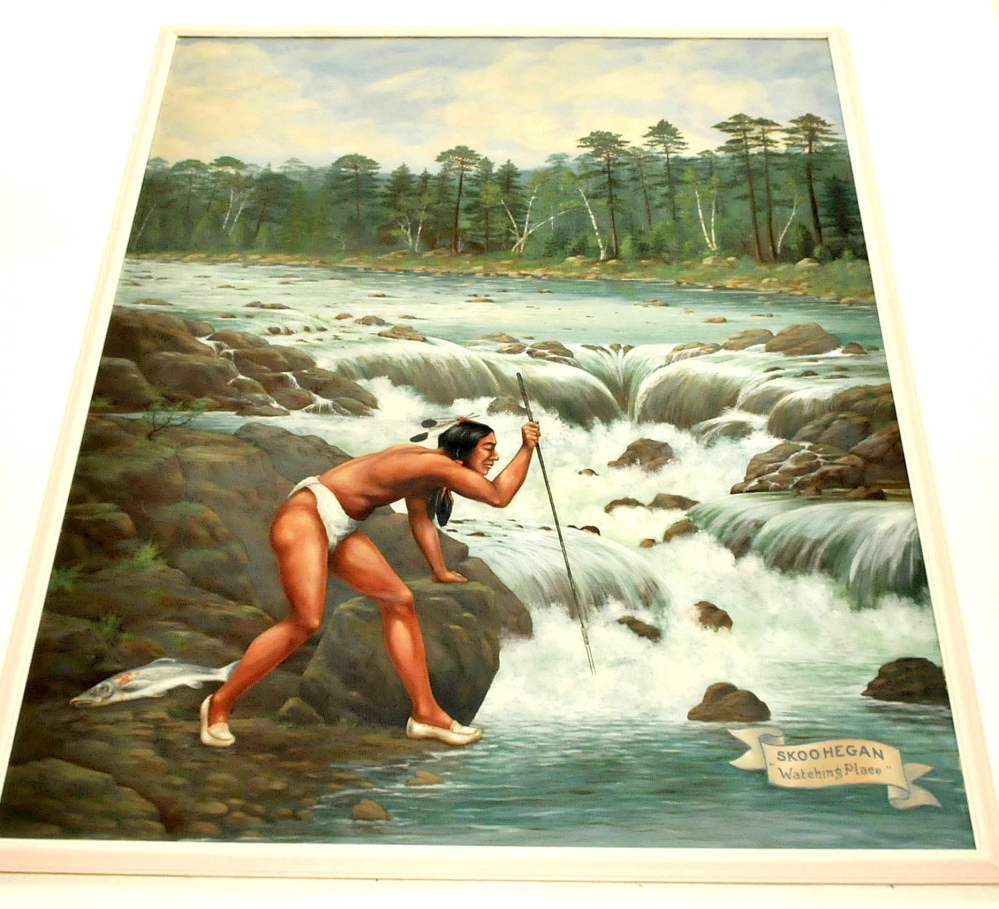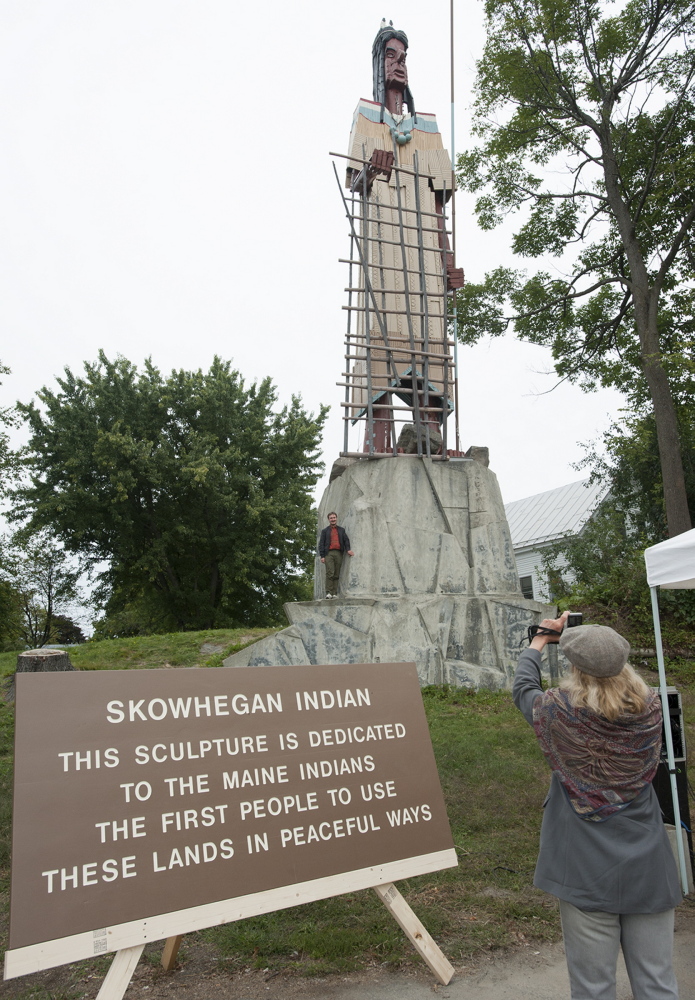SKOWHEGAN — A postal clerk in Skowhegan in the 1870s amused himself one year by making a list of 140 different spellings of the name “Skowhegan” that he had found on letters sent to town residents and businesses over the years.
That’s according to Louise Coburn in her book “Skowhegan on the Kennebec,” published in 1941. There were also several translations of “Skowhegan” – one dating back to the King George map in the British Museum dated 1755, calling the location Schoogun Falls and Island, Coburn wrote.
But recent controversy about the use of the “Indians” mascot by Skowhegan school sports teams has sparked another debate: Is the town’s name being translated correctly?
The official and long-held translation of the name “Skowhegan” by local historians has been “a place to watch,” referring to how Native Americans watched for fish to spear and trap as they traversed the mighty falls of the Kennebec River.
Another translation of the name is offered by Roger Paul, a Passamoquoddy Indian language teacher, who spoke April 13 during a joint meeting of a school board subcommittee and 10 members of the Wabanaki Indian federation.
Paul said his interpretation of the name “Skowhegan” from the Passamoquoddy language is broken down into two parts, the first part of the word meaning “brook trout,” the second meaning “fishing with a weir,” or a large net, such as the one featured in the Skowhegan Indian sculpture by Bernard Langlais.
“My job is to teach that we’re not gone. We’re still here, we still speak our language, we still follow our traditions,” Paul told the school board subcommittee. “My job now is to untangle the history and actually share wherever I can about our ways – even the name ‘Skoohegan’ – I read somewhere that it meant ‘looking place.’ ‘Skoohegan’ is actually what we would name a brook trout fishing weir, and I believe your statue holds one.”
Lee Granville, an associate curator at Skowhegan History House & Research Center, writes in “The Early History of Skowhegan” that there is uncertainty about the origin and meaning of the name “Skowhegan.”
“One source says that in the Abenaki language it means ‘Falls by the Pine Plain Lands,’ ” Granville writes. “Another says that ‘Skowhegan’ is the Indian word for ‘spearing’ or ‘place to watch.’ Most historians lean toward the latter translation, but either would have been descriptive. In any event, the name Skowhegan was used by the Indians long before the first white settlers arrived to build their own community and adopting the same name.”
Skowhegan History House President and Director Melvin Burnham said there are no plans for the organization to change “a place to watch” as the current translation of the word “Skowhegan.”
“If, in fact, a different meaning of the name ‘Skowhegan’ is substantiated by a reputable source then we, at History House, would blend that information into our overall story and move on,” he said.
Send questions/comments to the editors.




